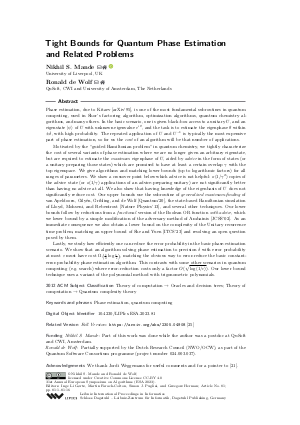LIPIcs.ESA.2023.81.pdf
- Filesize: 0.79 MB
- 16 pages

 Creative Commons Attribution 4.0 International license
Creative Commons Attribution 4.0 International license




Feedback for Dagstuhl Publishing